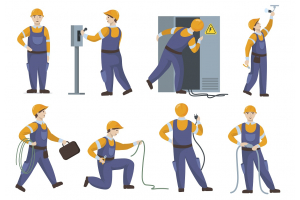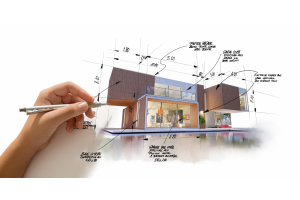
The construction industry worldwide has been growing very quickly. Due to this, civil engineers and construction managers face enormous demands. To succeed as a civil engineer, you need an understanding of some engineering interview questions. Below is a list of professional engineer interview questions and answers.
Being a proficient engineer is not enough to assure you of a coveted position. Sharpening necessary skills before an interview will help you get a position to achieve a specific goal. Civil engineers need to go understand related fields, such as contracting. Documents related to construction, such as AIA contract documents, also help the learning process.
The following 15 questions are likely to be asked by an interviewer. The
1. What is the term Cavil engineering?
After military engineering, civil engineering is known as the second oldest form of engineering. The definition is: designing, constructing and maintaining various systems such as buildings, houses, or public infrastructure, etc.
2. What are the Qualities of being a civil engineer?
One of the best qualities is to ensure a strong career path and a strong head plan. He knows what and how to start building a project. Civil engineers possess solid critical thinking and technical knowledge to deal with upcoming projects.

3. What are the different types of building foundations?
For any construction, three types of foundation designs are used. Three types of foundation designs are basement design, crawl space design, and slab.
Basement design: prepare the building's basement, and then start the rest of the construction on the top of the basement.
Slab design: Here, the concrete is poured directly into the pit made in the ground.
Crawl space design: this foundation design is built above the ground, and a raised foundation is constructed. The rest of the building constructed above the crawl space.
4. Discuss the whole concrete process?
The process is in four major parts: batching, mixing, placement, and compaction.
Batching:
The initial process to measure materials for the concrete. The materials are measured by weighing the materials or by measuring them by volume. These are known as weight batching and volume batching.
Mixing:
Initiated with the dry form and then in the wet state. They may be hand mixed and machine mixed.
Placement:
The vital procedure is the placement of mixed concrete. The mixed concrete is transported to the desired position and spread in place.
Compacting:
This removes the air bubbles trapped in the concrete during placement. This is done either by hand with the help of vibrators.
5. What are the known methods and meaning of concrete curing?
Concrete curing is important to the strength development and durability of concrete. Curing begins immediately after concrete placing and finishing. Curing involves maintaining desired moisture and temperature. Both must be at depth and near the surface, for extended periods of time.
Methods in concrete curing are ponding, steam curation, water sprays, and curing compounds.
6. What do you know about the concept of the slump test?
Slump tests measure both the workability of concrete and the reliability of concrete immediately after placement.
7. What do you know about the cavitation process in pipes and drains?
Air bubbles formed in fluids are low-pressure and usually become lower than the saturation pressure. The situation is known as the cavitation process. It creates a damaging situation to the durability of pipes.
8. Do you know about soil analysis?
Soil analysis is a process of soil testing that helps control elements embedded within a specific soil sample.
9. What do you think is a situation where pot bearings are used over elastomeric bearings?
Pot bearings are used more for high-capacity loads and within any rotational environment. Any project most likely requires pot bearing over elastomeric bearings. At the same time, pot bearings don't need concrete bearing surfaces as compared to elastomeric bearings.
10. How and why are alloys being made?
Alloys are made to give suitable quality materials and get materials as desired. Alloys are, therefore, made using a method of hot press usage. It helps to include a hot metal base in the metal powder drum. Then hot spraying methods are performed. If necessary, then molten base metal can be added with alloying materials.
11. What is the central concept of segregation?
It is a term used to filter cement and sand separately from the concrete. Segregation is due to vibration between the materials forming concrete. Whereas one material being high in weight and one would be less in a liquid kind of state. The heavier materials will settle at the bottom of the concrete, and the lighter ones will move on the top.
12. Discuss the responsibilities of a construction manager?
Here is the list of the responsibilities of a construction manager as follow:
- Estimation of cost
- Pre-purchase the selected materials.
- Collection of bidders
- Investigation of proposals.
- Construction scheduling and monitoring
- Construction negotiations
- Controlling the cost of construction
- Observation of construction
13. Discuss the risk factors for workers on the construction site?
The risk factors for the workers on the construction site are as follow:
- They may fall from heights
- They could be subjected to electric shocks and arc blast
- Motion Injuries
- Having support or gutter collapse
- Not having thoroughly examined personal equipment

14. Discuss out the composition of a landfill?
There are four critical elements as follow:
- First: the bottom liner
- Second: the collection system
- Third: the cover
- Fourth: Natural hydrogeologic settings
15. What is the cost that has to be considered while in a construction project?
- Attainment of land such as assembly, holding as well as improvement.
- Planning
- Material, equipment, and labor.
- Project Sponsor related to a bank loan.
- Indemnity and taxes.
- Proprietor's office directly above
- Analysis and testing.
- Field management and engineering design
- Architectural design
Tips for Civil engineering interview:
- Know your field of work
- Be Professional and dress formally
- Be on time
- Think wisely
- Be Confident
Prove them you are well-deserved for the job.
Conclusion:
Hopefully, after reading the details mentioned above, you will understand their importance.
Some of the questions asked above are as follow:
- What is the term Civil engineering?
- What are the Qualities of being a civil engineer?
- What are the different types of building foundations?
- Discuss the whole concrete process?
- What are the known methods and meaning of concrete curing?
- What do you know about the concept of the slump test?
- What do you know about the cavitation process in pipes and drains?
- Do you know about soil analysis?
- What do you think is a situation where pot bearings are used over elastomeric bearings?
- How and why are alloys being made?
- What is the central concept of segregation?
- Discuss the responsibilities of a construction manager?
- Discuss the risk factors for workers on the construction site?
- Discuss the composition of a landfill?
- What is the cost that has to be considered while in a construction project?
Having skills and knowledge of a particular course will help you to achieve your goals. If you have any questions, let us know and we will do our best to help.


